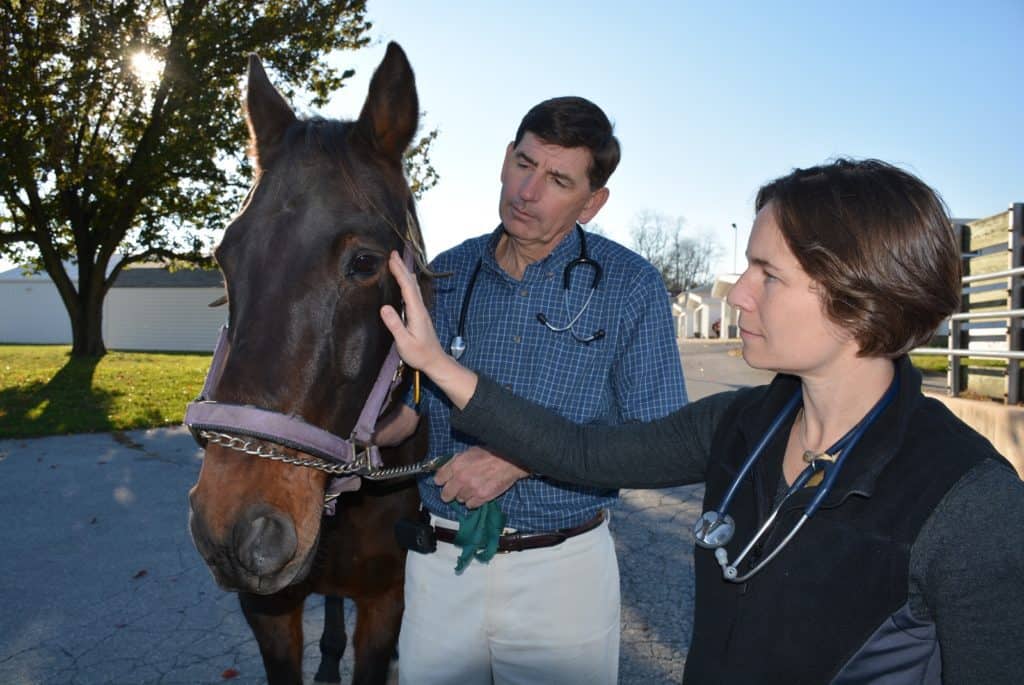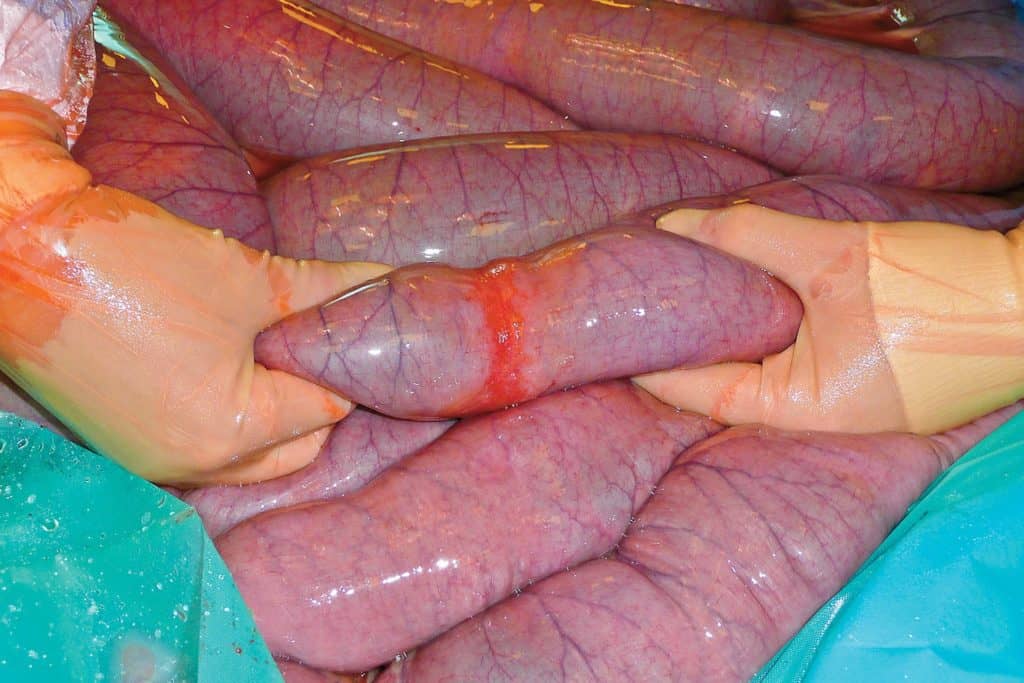
Mechanisms of Exercise-Induced Pulmonary Hemorrhage
David Poole, PhD, DSc, of Kansas State University, presents information about horses’ oxygen transport pathway.

David Poole, PhD, DSc, of Kansas State University, presents information about horses’ oxygen transport pathway.

Researchers could not identify a positive relationship between inflammation and obesity or insulin resistance in horses.

Penn Vet researchers tested more efficient ways to identify blood compatibility and type prior to transfusions.

Too much dietary selenium can cause toxicity or even death. But too little selenium can be life-threatening, as well.

Researchers are studying underlying genetic factors that lead some horses to develop heaves while others don’t.

Researchers hope to reduce the risk of racehorse fatalities on the track.

Hot topics include digestion, metabolism, soft tissue injuries, and inflamm-aging.

I’m worried about putting too much stress on my 3-year-old’s body. When is it safe to ride her on a regular basis?

Drs. Norm Ducharme, Sue Dyson, and Susan Stover will be inducted into the UK Equine Research Hall of Fame in October.

Dr. Amy Johnson will conduct live equine neurologic exam demonstrations as part of the lecture.

Is it worth taking a chance on a horse with a “clubby” foot, and how can you manage one to keep him sound?

Scientists say molecular changes to an in-joint protein layer called lubricin could indicate osteoarthritis development.

Learn more about this challenging inflammatory condition that affects the horse’s intestines.

Injecting bone marrow aspirate into core SDFT lesions yielded good results for returning racehorses to competition.

The index case showed clinical signs of the respiratory disease after being admitted for an unrelated surgery.

Performance horses have special nutritional needs. Here are some tips on how to get the most out of your athlete’s diet.
Stay on top of the most recent Horse Health news with
"*" indicates required fields